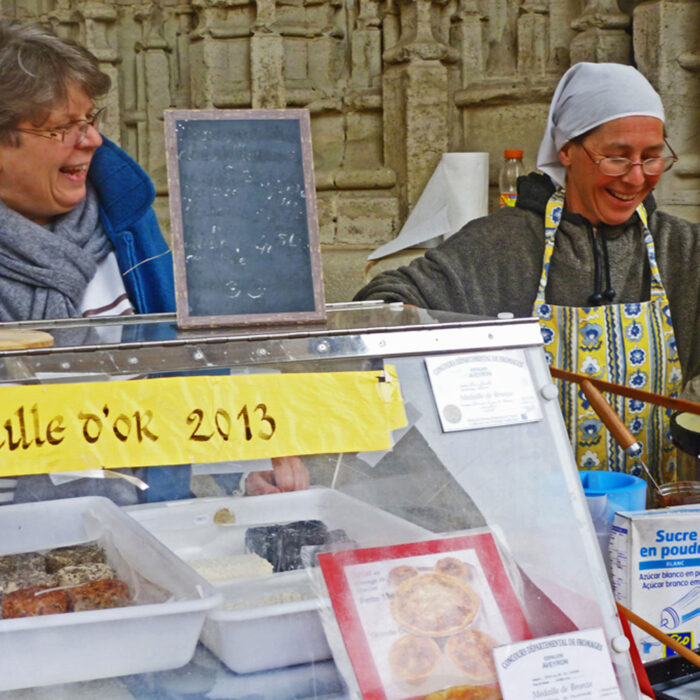You have no items in your cart. Want to get some nice things?
Go shopping
In the first part of this essay, I outlined what I see as two serious problems with English Literature – its scope, and, as it were, shape and accent – as it is bound, thanks to Michael Gove, to be taught in schools. I argued that what counts in schools as Literature is being narrowed (despite recent governmental claims to the contrary; see here and here for a sense of the argument). I also expressed my concerns that widespread understanding of just what literary study adds to our knowledge and know-how is lacking, particularly as such study seems now to be cast as a branch of history.
Time, now, to address this second concern in a little more detail.
What comes next, I fear, has been said by other writers and thinkers many times before; but it is something that warrants the saying again and again, in specialist and generalist fora, in as many different ways as speech and writing can devise. Particularly when the public philosophy of education is in so parlous a state as it is at present.
For Gove, to have a head full of “facts” is to have a head full of “knowledge.” (Though it is problematic to do so, we will assume for now that just what “facts” are is self-evident.) On this basis, then, because what students spend most time doing in English lessons has relatively little to do with facts, it can have just as little to do with knowledge, and students’ acquisition of it. It is true that English teaches little in the way of “knowledge” as Mr. Gove conceives of it; but this is only because his conception of knowledge as a collection of facts is, at the very least, shabby, while at most it is just wrong.
The nub of the problem is with the models that knowledge-as-acquisition-of-bare-facts tends both to rest upon and to support. This is knowledge as so many marbles in a jar, coins in a tin; as so many items to be put into storage. A far more agile and serviceable conception of knowledge was offered around a century ago, by the philosopher, educator, and public intellectual John Dewey. This conception has been reiterated more recently by the likes of Richard Rorty (a philosopher by training who, more and more, turned to literature for the source and performance of the sort of philosophical work that interested him, and who was committed to the public communication of philosophical and artistic endeavour). It is also a model that finds a good deal of support on the sides of neuroscientific educational research (see, for example, Maryanne Wolf’s story of the reading brain, Proust and the Squid), and philosophy of language (the so-called “later” Wittgenstein, for example, as well as Donald Davidson, on whom more below; famously, Wittgenstein declared that “philosophy ought really to be written only as a form of poetry”).
For Dewey, knowledge was, fundamentally, a matter of making connections. This may seem simple enough; so simple, perhaps, as to be decidedly underwhelming. But it is a world away from Gove and his marbles, and it makes knowledge acquisition, as we will see, just as fundamental a part of studying English Literature as of learning by rote the birth- and death-dates of the Kings and Queens of England. The implications of Dewey’s conception of knowledge are radical: knowledge is not the end result of a process of learning; rather, learning and knowledge are synonymous, and Dewey understands these synonyms as signifying dynamic processes, not end states. Dewey’s idea of knowledge-as-connection is not a theory of advanced intellectual activity only, but of the fundamental structure or pattern of learning itself. He has in mind the child’s connection of the ideas of fire, heat, and potential pain, just as much as he might the “higher order” thinking and knowing one encounters in, say, academic literary criticism.
When one learns, one reveals and renews one’s understanding of meanings. Meaning is not only produced by words – in the air or on the page – but let us limit ourselves to words for now. To learn and understand, then, is to make connections between strings of words; sentences. One learns words and their meanings, but also forms of words, routine collocations; hopefully, over time, one learns increasing combinatorial possibilities of forms of words. The linguistic reading brain, as Maryanne Wolf tells the tale, is a swift and athletic archivist: when reading words that are already “known,” the brain will perform a high-speed sifting exercise of the possible ways in which these words might signify.* We only self-consciously experience anything like this, of course, when we come up against words and phrases with which we are not quite comfortable, or perhaps with familiar words used in unfamiliar ways. The linguistic creativity with which we credit “great” writers, then, is often this ability to defamiliarize the familiar; to use familiar words in unfamiliar ways; to come up with one-thousand-and-one uses for the same old linguistic coat-hanger. It is striking, noted the linguist Noam Chomsky, that while all natural languages are constrained at a deep level by logical or grammatical “rules,” we language users show – in our day-to-day interactions, let alone our literary efforts – an almost boundless capacity for linguistic improvisation and invention.
Dewey’s ideas also chime with the more abstract philosophical work that Donald Davidson carried out on the structure and logic of metaphor. Having briefly wandered from a clearly literary path to one neuroscientific, perhaps this will steer us back towards more familiar literary territory. Though Davidson was not, in most of his work, primarily interested in literature, Richard Rorty, among others, has brought many of Davidson’s insights to bear on literary matters. In particular, Rorty found that he need go no further than Davidson on the thorny philosophical problems of truth and meaning, as they impact on both philosophy and literature; these issues, once resolved in a “Davidsonian” fashion, have profound implications for our understanding of metaphor, so fundamental a literary device. Or so we have traditionally been taught.
Without going into unnecessary and laborious detail, and at the risk, admittedly, of oversimplification, Davidson’s view of truth was that it was not an abstract property of things or the world, but that it was a property of sentences: sentences, not the world, could be true or false. For example, the truth of the sentence “the snow is white” rested on our common understanding of a shared language, and our ascent to the meaning of that sentence. The truth of “the snow is white” has nothing to do, if one follows Davidson, with some deep metaphysical truths about the snow-ness of snow, the whiteness of white, nor the mode of Being embedded in the copular verb “is.” Let’s be clear: Davidson is not denying that the snow is in fact white. But he is uninterested in such metaphysical insolubles. His semantic conception of truth explains the linguistic operation of this thing we call “Truth” – a thing, he believed, that we could hardly do without – while avoiding any metaphysical claims to ultimate or timeless truths.
On metaphor, Davidson was just as interesting. Again at the risk of oversimplification, Davidson was keen to dismiss the idea that metaphors are figures – words or phrases – that somehow “contain” a “hidden meaning.” The understanding of metaphor that Davidson was trying to scotch was what we might call the “dual track” version. The best-known example of dual track metaphor is I.A. Richards’s, in which metaphor consists of its “vehicle” (the form of the metaphor) and its “tenor” (its “actual” meaning). Faced with a sentence as uninspiring as “He was a lion on the battlefield,” a teacher will likely suggest that “lion” (the vehicle) is a metaphor for something like “bravery” and “ferocity” (the tenor). Davidson’s suggestion is that when we talk of the meaning of a metaphor as if it were its (hidden) content, we misspeak. We misspeak because we often try to make a special case of metaphorical meaning, when it in fact operates according to the same system of meaning as everyday language: here is the word (the vehicle), and here is its meaning (the tenor), the thing, idea, or object to which it refers. If the dual track model works at all, it works as an overly simple description of linguistic reference in general, not metaphors especially. What we are actually talking about when we speak of the meaning of metaphor, says Davidson, is the effects a metaphor has on us. And to these effects there is no logical limitation; a metaphor’s reach is determined by the range of significations a word or phrase can have for us (recall Wolf’s athlete-archivist reading brain).
Metaphorical meaning, on Davidson’s view, is not a matter of dictionary definitions, but of the fine linguistic grain of our lives, our memories and experiences. Metaphors are autobiographical mnemonics that we learn at the moment of realization. The “meaning” of interesting metaphor, then, so central to what literature supposedly offers its readers, is not a case of special meanings of words; rather, it is a case of so-called literal language being used in innovative combinations, a case of redeploying the coat-hanger. It is a matter not of meaning, per se, but of use; not of words in isolation, but of clausal, if not of sentential, construction.

I began by picking a fight with Mr. Gove over the scope of English literary study; over a loss of vision as to what English, as a subject, might be, do, or, perhaps, be for; over a rationalization of English literary study premised on a small-beer vision of Historical Importance; and over an unwelcome narrowing of The Literary, as it is soon to be handed down to us – educators, students, readers, writers; the good, normal, everyday folk so vaunted in and by the rhetorical dreck of today’s generally insipid political discourse. How, then, to draw all this together?
I suggested that simply to “know” that Shakespeare and the Romantics are important is to leave untouched just why they are so. Here, then, is my general answer (if Dewey was, indeed, underwhelming – as he appeared in my summary, at least – then you needn’t brace yourself): any important writer is likely to be so, because she makes available to us new forms of expression and thereby gives renewed shape and texture to experience.
That is it.
Great writers bring into this world new and vital metaphors – metaphors as a Davidson or a Rorty would construe them; as words and phrases that mean differently according to our different experiences and understandings of the world. Literature affects our aesthetic worlds; but to say this is no cheap frill. The implications of Davidson’s take on metaphor are that language is fundamentally metaphorical; it’s just that some metaphors interest us and arrest our attention, while others don’t. If you are swayed, as I am, by the idea that we cannot think things separately from the forms in which we might express them – and this is an idea that one can find with, as it were, modal variation in Rorty, Derrida, Davidson, Wittgenstein, Heidegger and others – then, like me, you do not believe that language neutrally represents our ideas and experiences; you believe that it is structurally integral to the ways in which we can know our experiences as such.
To be able to say differently, on the view I am advocating, is to be able to think differently; and to be able to do these, is to be able to be differently. It is to see the world anew. Whitman was not indulging in “mere” metaphor or metalepsis when he sang the poetic virtues of slang, claiming that it “not only brings the first feeders of [Language], but is afterward the start of fancy, imagination and humor, breathing into its nostrils the breath of life.” The form of the expression and its meaning are inseparable, singular, irreducible; Whitman’s words are part of the dance and play of Language itself.
This, then, is what makes English so vital and urgent an area of study: it has the potential to shape our aesthetic and ethical landscapes. It is central to the notion of self-realization that, any secondary-school sociology primer will likely tell you, is supposed to top the hierarchy of needs in any supposedly advanced, supposedly liberal democracy. And it does so, often, without the philosophical jams I have relied so heavily upon in this article. Gove pays lip service to the essential link between education and democracy. People like Dewey actually believed in it. If one examines their language with just a little care, so much soon becomes clear.
This ethical-aesthetic world-making of which English Literature is a part is as good a reason as any to study Shakespeare and the Romantics. But it does not necessitate that we study only or even primarily them. For they are not the only sources of radical aesthetic reformation and rejuvenation. Just as one cannot predict the resonances, the “meanings,” of any one metaphor for any one reader, neither can one predict the authorial sources of aesthetic revelation. We might therefore wish to be wary of restricting them. A good friend of mine, a novelist, once told me that the longer he reads and writes and teaches, the more he is convinced that the reason one takes up literature, beyond the need for a few moments of escapism, is to have a conversation. I think he is most likely right. And I think that desire to have a conversation must be a function of one’s expanding linguistic, and therefore aesthetic, world. (The very notion of conversation, I note in passing, is developed in fascinating ways in “The Voice of Poetry in the Conversation of Mankind” by Michael Oakeshott, a sometimes traduced poster-boy for “soft” Toryism, whose contributions to educational thinking are praised by Gove. Gove, I take it, is either unaware of or uninterested in Oakeshott’s essay on poetry. Certainly, its perspicacity stands in marked contrasts to Gove’s educational myopia.)
As I have said: an underwhelming conclusion, perhaps; but one that warrants the saying. Again, and again, and again. For it is a conclusion that I find increasingly hard to disavow, the more it is glossed over by the cheap yet thick veneer of Gove’s educational policy and so-called philosophy. The idea that English may not be a mere sub-genre of a narrowly conceived notion of History – the “historical” study of “Great Authors” – but, rather, a study in thinking and learning, as Dewey understood these terms; the idea that it might be a form of moral and aesthetic development: such ideas are not so very far removed from the values embedded in that cluster of ideas that came, retrospectively, to be known as Renaissance humanism. Such ideas, then, may be at loggerheads with Gove’s, but they are easily enough reconciled with some of the more vibrant thinking that shaped the epoch in which he apparently places such great store.
****
Time to draw breath. So I will end with the following thought, put forward by the computer scientist and educationalist Seymour Papert. In a world of astounding technological change, suggests Papert, in a passage that maintains a connection between the ideal of Socratic irony and present-day educational pressures, the one thing we can be sure of is that we cannot be sure of very much. But it is likely that whatever knowledge-as-facts we learn at school will be obsolete, more or less, by the time we move on from school. With this in mind, he says that the
To say differently, to be differently: English might just be one jazz workshop in which students can learn the improvisational skills that enable the seeing, speaking, thinking of things anew. Such learning to learn will prove the only absolutely essential skill for life as Papert thinks it. And such a skill lives a world away from the anti-liberal, politicized education so vigorously touted at present by our leaders.
* As well as Wolf’s work on the reading brain, there have been some interesting developments in the science of the sleeping brain, and the ways in which the brain selects, during sleep, what information to retain, what to “wipe.” Here again, connection is an instructive metaphor: recent work by Giulio Tononi and Chiara Cirelli (of the University of Wisconsin-Madison) suggests that repeated patterns of neuronal stimulation encourage the transfer of information to the long-term memory, whereas stimuli that produce unusual or uncommon neuronal firings are more likely to be scrubbed from the body’s hard-drive, which only has a finite amount of storage space. See their article, “Perchance to Prune,” in the August 2013 issue of Scientific American.

About Oliver Belas
Oli Belas is a teacher, writer, and independent academic. He lives in Walthamstow (north-east London) with his ever-supportive and endlessly patient wife, Sarah. He has written about popular science, detective, and African American fiction, and literary theory/philosophy. When time and geography allow, Oli works with his friend, artist Rene Daigle. Their first joint effort is the illustrated essay "The Enduring Appeal of the Mystery Story" (published in Litro Magazine), and they have plans for some illustrated, noir-ish fiction.





oh wow! You conceived me a great idea! I am working for the https://pro-papers.com/au/ourServices and i should write some interesting essays and articles on different thenes, especially arts and literature. Your question is a brilliant theme for my following article. I’m looking forward to see more information about j-drama, guys!)
I completely agree that public philosophy of education is in so parlous a state as it is at present. I have been working as a writer for a long time and I know a lot of problems associated with writing essays. With a lot of other things, I agree also… I have a lot of awesome works https://writercheap.com that everyone can check by yourself and maybe find something interesting for yourself.